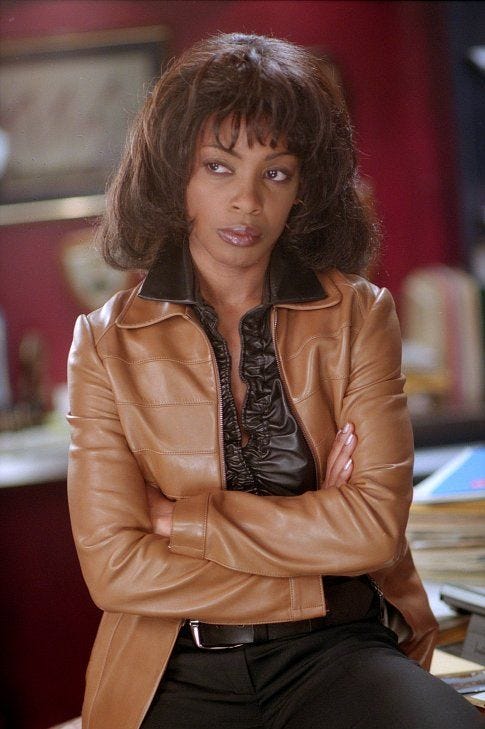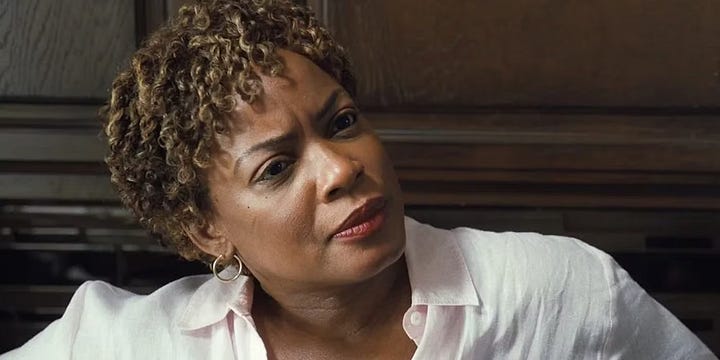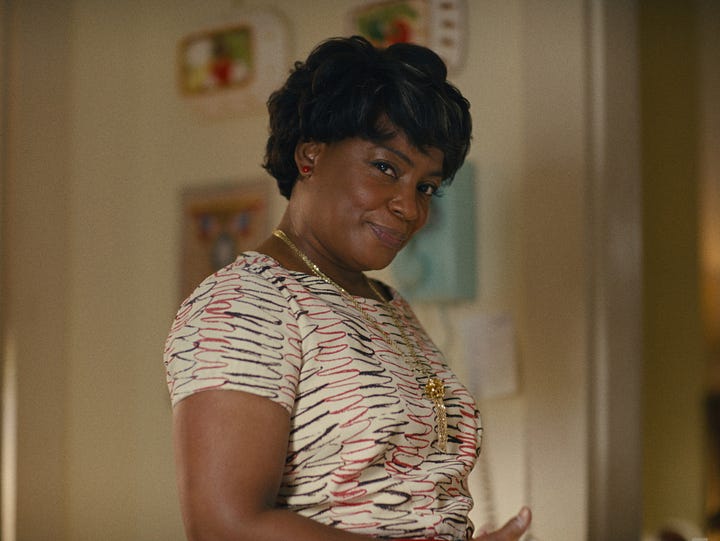Turning Pain Into Power
There’s an unspoken initiation that happens in the life of a Soul Alchemist. It rarely announces itself, and it never comes easy. But when it arrives, it shakes you to your core, and what you do with that experience defines everything that follows. The Soul Alchemist within The Creative Visionary isn’t just an artist. They’re a vessel. A witness. A sacred transmitter of emotional truth. They don’t perform pain; they transform it. They craft art not just to be seen, but to be felt, to be lived through again in new ways. That’s what makes them essential.
I know this archetype intimately, not because I studied it, but because I lived it.
To be a Soul Alchemist is to sit in the center of your own heartbreak and listen carefully. Not for answers, but for understanding. It is to create from scar tissue and memory, not out of voyeurism but survival. I don’t create because it’s cute or because it’s trendy. I create because it keeps me alive. It’s how I metabolize the sharp edges of the world and reshape them into something tender enough to hold. That’s the alchemy.
This archetype is not about drama for drama’s sake. It’s about depth; the kind that demands you tell the truth, even when it’s inconvenient. Especially when it’s inconvenient. The Soul Alchemist traffics in emotional honesty. Our art doesn’t hide the wound; it reveals it and then makes meaning from it.
Vulnerability isn’t a buzzword here, but it’s a craft, a practice, a commitment.
When I think of Soul Alchemists who have shaped culture from this emotional root system, I think of Lauryn Hill, whose discography is a series of sacred confessions. Her voice holds both the ache and the affirmation. I think of Solange, who doesn’t just make music, she conjures environments of healing. When I Get Home felt like a journey through Black womanhood as a spiritual practice. That is Soul Alchemy.
How Creative Visionaries Transform Lives
There’s something undeniably powerful about a creative visionary. We’re not just artists or thinkers; we’re transformers of worlds. We do more than create; we reimagine. We see beyond the cracks in society and envision what could be, should be, and sometimes, what
But Soul Alchemy isn’t limited to the canvas or the studio; it breathes just as fully in the writers’ room, on stage, on screen.
Mara Brock Akil: Architect of Emotional Truth
Mara Brock Akil is a master Soul Alchemist in television. Her pen has shaped the emotional language of a generation. Girlfriends, Being Mary Jane, Love Is_—these aren’t just shows; they’re emotional archives. She writes from the fissures, from the spaces where the facade breaks and what’s underneath comes pouring out. Her characters aren’t aspirational in the traditional sense, they’re real. Messy. Searching. They are women who cry in the car after meetings, who love deeply and sometimes dangerously, who return to themselves after rupture. That emotional complexity is a form of healing in itself.
Mara doesn’t write pain for spectacle. She writes it to explore how Black women hold the world on their backs and still find ways to love. Her work is a balm and a battle cry, a space where Black womanhood is not flattened or fetishized, but deepened. She writes like someone who knows what it costs to feel everything and still show up.
Audra McDonald: A Voice That Holds Space
Audra McDonald doesn’t just sing, she sanctifies. Her voice has an otherworldly resonance, but it’s her emotional specificity that makes her unforgettable. Whether she’s on Broadway or in a concert hall, she brings a soul-level sincerity to every note. She sings like someone who has walked through fire and learned to speak softly with the flame. When Audra performs, it’s not a performance, but it’s presence. She holds space for grief, for longing, for hope. And in that space, healing happens.
Her ability to channel emotional history through her vocal phrasing is a masterclass in Soul Alchemy. In roles like Bess from Porgy and Bess or Billie Holiday in Lady Day at Emerson’s Bar and Grill, she doesn’t just embody a character; she resurrects them. She brings their stories back from the margins with care, voice, and vulnerability. That’s sacred work.
Aunjanue Ellis-Taylor: Embodied Resistance
To watch Aunjanue Ellis-Taylor act is to witness a woman conjure truth through every gesture. She’s not acting, but she’s testifying. In King Richard, When They See Us, and The Clark Sisters, she pours so much lived experience into her characters that it blurs the line between performer and prophet. There is nothing passive about her portrayals. They are charged with the energy of reckoning. She refuses to flatten Black womanhood for comfort. Instead, she stretches it wide open, showing us rage, devotion, vulnerability, and strength; all at once.




What makes Aunjanue’s work particularly alchemical is the way she uses silence as much as she uses speech. Her characters don’t always say everything, but you feel everything. She gives us women who have survived something, and who carry that survival in their posture, in their cadence, in their resistance. That emotional architecture doesn’t just come from training; it comes from having sat with your own shadow and made peace with it.
The Fictional Soul Alchemists
There’s a thread running through some of the most emotionally potent TV/film characters, women who aren’t merely reacting to trauma, but transmuting it. These characters don’t just survive; they shift the atmosphere. They teach us what it means to live with open wounds and still dare to create.
Angela – Wicked City
Angela is what happens when survival becomes strategy. In Wicked City, she navigates a dark underworld while holding on to her moral compass; a feat that requires constant inner negotiation. Her choices aren’t always pretty, but they are always rooted in something deeper: a refusal to let the world define her worth. She is a Soul Alchemist in motion, turning trauma into testimony, grit into grace.
Angela’s strength lies in her refusal to be consumed by the violence around her. She doesn't flinch from the ugliness. Instead, she reclaims her story on her own terms. That reclamation is a form of healing, and in her quietest moments, we see the full depth of it.
Annie – Sinners
Annie doesn’t ask for your pity. She demands your witness. In Sinners, she embodies the contradictions of a woman haunted by her past and hunting for redemption. What makes Annie compelling isn’t just her pain, but it’s her refusal to be defined by it. She takes what was once shame and uses it as a mirror. She’s not trying to be liked. She’s trying to be whole. That distinction matters.
Her vulnerability isn’t soft; it’s sharp. It cuts through pretense. When she speaks, you hear the ache behind every syllable. That ache doesn’t weaken her. It grounds her. Annie shows us that healing is not a linear arc; it’s a spiral. You return to the wound again and again until it no longer owns you.
Nola Darling – She’s Gotta Have It
Nola is perhaps one of the most misunderstood Soul Alchemists in modern television. She is bold, boundary-pushing, and constantly evolving. But beneath her bravado is a deep desire to be seen and held, not as a fantasy, but as a full person. Her art is autobiographical and unflinching. She paints to reclaim her body, her space, her truth.
Nola doesn’t conform, even when it costs her relationships, security, comfort. She is committed to her own liberation, and that commitment bleeds into every aspect of her creative life. She turns heartbreak into canvas. She paints her loneliness in vivid, unapologetic strokes. She doesn’t ask for forgiveness, but she demands freedom. That kind of courage is alchemical.
Ms. Josephine – Beauty Shop
Ms. Josephine is the kind of elder you don’t forget; sharp-tongued, wise-eyed, and tender when it counts. She’s a quiet Soul Alchemist, but no less powerful. Her strength comes not from drama, but from her depth. She has seen things. Lived through things. And in her presence, you feel a kind of ancestral steadiness.
She doesn’t perform healing, but she is healing. In Beauty Shop, Ms. Josephine is the emotional spine of the shop. She cracks jokes to ease tension, tells stories that hold generations, and offers the kind of wisdom that can only come from surviving yourself. She is a living archive of resilience. And in her laughter, you hear the echo of every woman who learned to laugh instead of cry.
The Art of Holding Space
The Soul Alchemist doesn’t just tell a story; they hold space for others to process their own. Whether it’s through a character like Angela navigating shadows or a playwright like Mara Brock Akil writing women into their own emotional center, the work reaches beyond entertainment. It becomes communal. It becomes sacred.
I return often to that phrase: your art holds space. That may be the most defining quality of a Soul Alchemist. Our creations don’t merely ask to be consumed, but they invite people to sit down, breathe, and feel something they may have buried. That is a radical offering in a world that rewards numbness and spectacle. To ask someone to feel is a subversive act. And to do so from a place of lived emotional truth? That’s power.
The characters and creators I’ve highlighted don’t just create from the surface. They mine memory, texture, shadow, and spirit. They remind us that emotional depth isn’t indulgent, it’s necessary. They remind us that it’s okay to grieve. That it’s okay to rage. That it’s okay to create from both the mess and the magic.
Healing is nonlinear. So is Soul Alchemy.
One day, you’re writing a poem about the person you lost. Another, you’re designing a piece that speaks to your younger self. Another, you’re performing something that scares you because it’s too close to the truth. That is how we move. That is how we grow. That is how we heal, by letting the wound breathe, by letting it be seen.
This is not about commodifying pain. This is about dignifying experience.
To be clear: not all pain turns into power. Some of it festers. Some of it needs tending before it can be shared. The Soul Alchemist does not bypass that. They sit with it. They walk through it. They earn their expression. There’s an integrity to this work. It’s not performative; it’s embodied.
I’ve had to ask myself over the years: Can I stand in front of this work and say I told the truth? Can I look at my own creation and feel proud, not because it’s perfect, but because it’s honest? That’s my north star. That’s my measure of success.
Because the Soul Alchemist isn’t chasing virality. We’re chasing healing. We’re chasing connection. We’re chasing the feeling of finally exhaling after holding it all in for too long.
If you recognize yourself in this, welcome. If you’ve ever turned your heartbreak into a sonnet, your grief into a short film, your questions into a canvas, welcome. You belong to a lineage of artists who refuse to look away. Who choose to see instead. To feel. To stay with the wound long enough to understand what it’s trying to teach.
Your gift is not just in what you produce, but it’s in how you feel, how you listen, how you hold. You are not too sensitive. You are attuned. You are not broken. You are open. That’s your magic.
You turn pain into power. You make sense of the senseless. You create portals of possibility where there was once only grief. That is no small feat.
So keep writing. Keep sculpting. Keep dancing, filming, drawing, performing, singing. Keep telling the truth, especially the parts that scare you. Because when you do, you don’t just free yourself. You make room for others to be free, too.
And that? That’s the most visionary thing you can do.
New Release: The Creative Visionary Guidebook: The Prequel is here!
This is more than a guide; it’s a call to reclaim your voice, your vision, and your creative power. Whether you're an artist, disruptor, or dreamer, this book is your invitation to create with purpose and lead with truth.
Start your journey now → https://payhip.com/b/ALQYg






















Thank u for this, I think this is what I am. Thank you for welcoming me into understanding, purpose and contentment in transformation.
Mara Brock Akil is honestly the creative I aspire to be. Her work and storytelling is so [chef’s kiss]